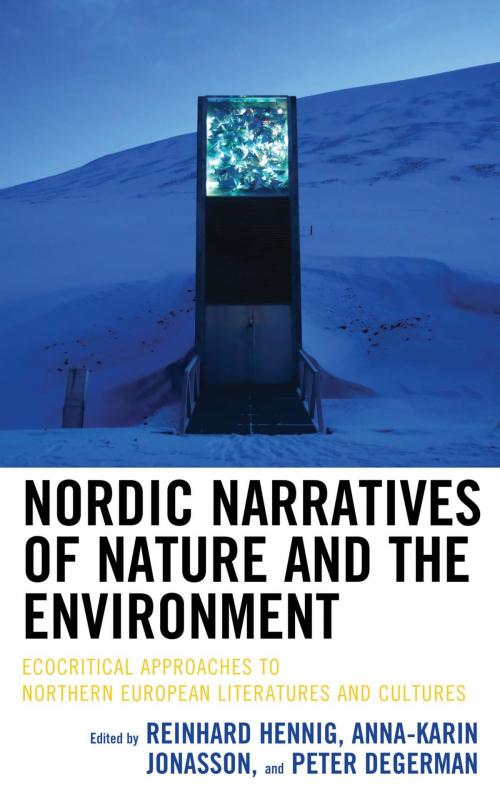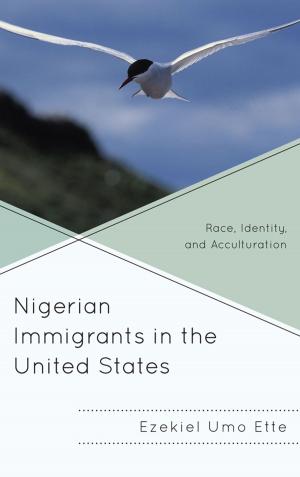Nordic Narratives of Nature and the Environment
Ecocritical Approaches to Northern European Literatures and Cultures
Fiction & Literature, Literary Theory & Criticism, European, Scandinavian| Author: | Reinhard Hennig, Anna-Karin Jonasson, Peter Degerman, Lauren E. LaFauci, Anna Sofia Rossholm, Jørgen Bruhn, Katie Ritson, Toni Lahtinen, Jenna Coughlin, Beatrice G. Reed, Hanna Samola, Nina Goga, Frederike Felcht, Kari Haarder Ekman, Cheryl J. Fish | ISBN: | 9781498561914 |
| Publisher: | Lexington Books | Publication: | October 31, 2018 |
| Imprint: | Lexington Books | Language: | English |
| Author: | Reinhard Hennig, Anna-Karin Jonasson, Peter Degerman, Lauren E. LaFauci, Anna Sofia Rossholm, Jørgen Bruhn, Katie Ritson, Toni Lahtinen, Jenna Coughlin, Beatrice G. Reed, Hanna Samola, Nina Goga, Frederike Felcht, Kari Haarder Ekman, Cheryl J. Fish |
| ISBN: | 9781498561914 |
| Publisher: | Lexington Books |
| Publication: | October 31, 2018 |
| Imprint: | Lexington Books |
| Language: | English |
Many contemporary environmental risks and global environmental changes occurring today are unprecedented in the history of human life on earth. However, the images and narratives through which humans relate to these phenomena are built on existing cultural tropes and narrative models. Cultural, social, and historical contexts strongly influence how we construct images and narratives of nature and the environment. It is therefore highly important to study such narratives in works of literature, film, and other forms of cultural expression in relation to the specific circumstances from which they arise.
Nordic Narratives of Nature and the Environment is the first English language anthology that presents ecocritical research on northern European literatures and cultures. The contributors examine specifically Nordic narratives of nature and the environment, with a focus on the cultures and literatures of the modern northern European countries Denmark, Finland, Norway, and Sweden, including Sápmi, which is the land traditionally inhabited by the indigenous Sami people.
Covering northern European literatures and cultures over a period of more than two centuries, this anthology provides substantial insights into both old and new narratives of nature and the environment as well as intertextual relations, the variety of cultural traditions, and current discourses connected to the Nordic environmental imagination. Case studies relating to works of literature, film, and other media shed new light on the role of culture, history and society in the formation of narratives of nature and the environment, and offer a comprehensive and multi-faceted overview of the most recent ecocritical research in Scandinavian studies.
Many contemporary environmental risks and global environmental changes occurring today are unprecedented in the history of human life on earth. However, the images and narratives through which humans relate to these phenomena are built on existing cultural tropes and narrative models. Cultural, social, and historical contexts strongly influence how we construct images and narratives of nature and the environment. It is therefore highly important to study such narratives in works of literature, film, and other forms of cultural expression in relation to the specific circumstances from which they arise.
Nordic Narratives of Nature and the Environment is the first English language anthology that presents ecocritical research on northern European literatures and cultures. The contributors examine specifically Nordic narratives of nature and the environment, with a focus on the cultures and literatures of the modern northern European countries Denmark, Finland, Norway, and Sweden, including Sápmi, which is the land traditionally inhabited by the indigenous Sami people.
Covering northern European literatures and cultures over a period of more than two centuries, this anthology provides substantial insights into both old and new narratives of nature and the environment as well as intertextual relations, the variety of cultural traditions, and current discourses connected to the Nordic environmental imagination. Case studies relating to works of literature, film, and other media shed new light on the role of culture, history and society in the formation of narratives of nature and the environment, and offer a comprehensive and multi-faceted overview of the most recent ecocritical research in Scandinavian studies.















